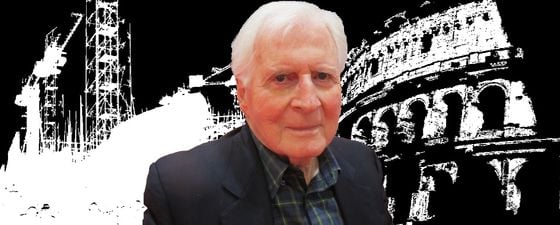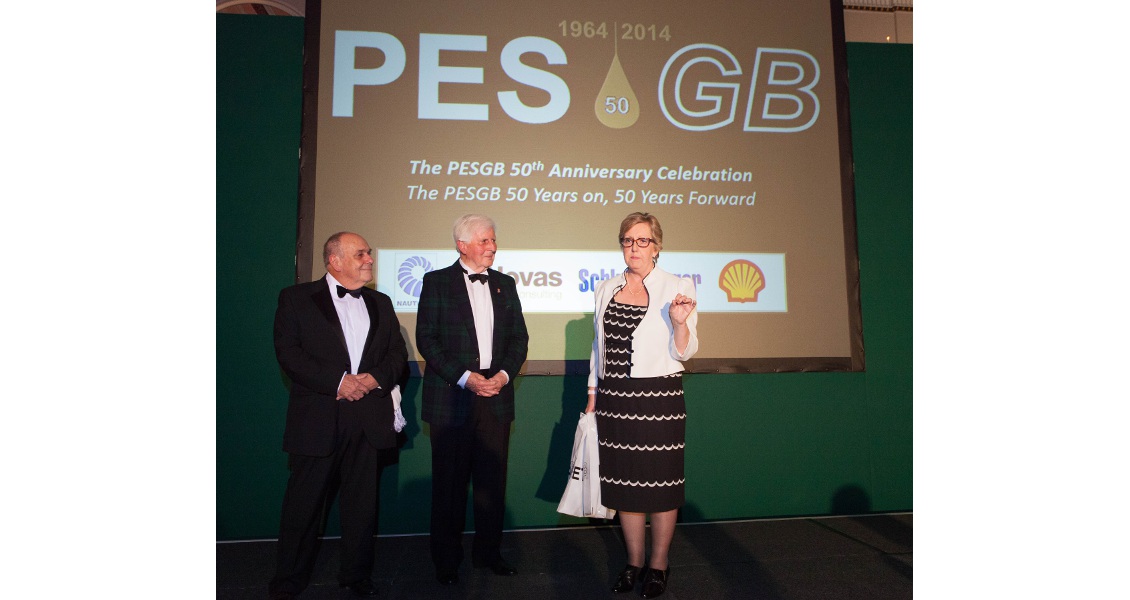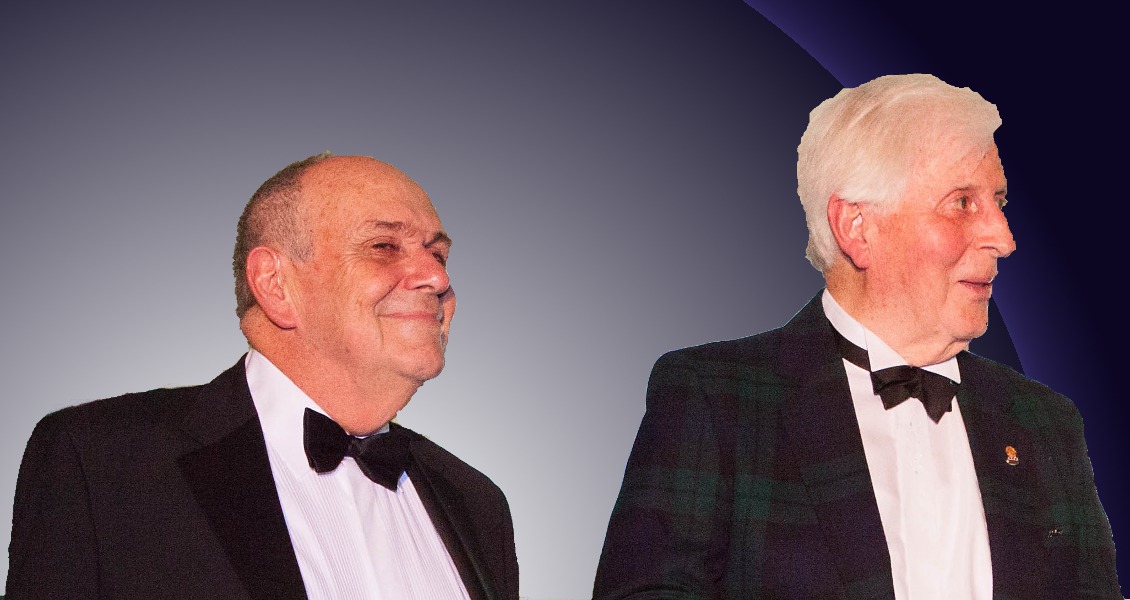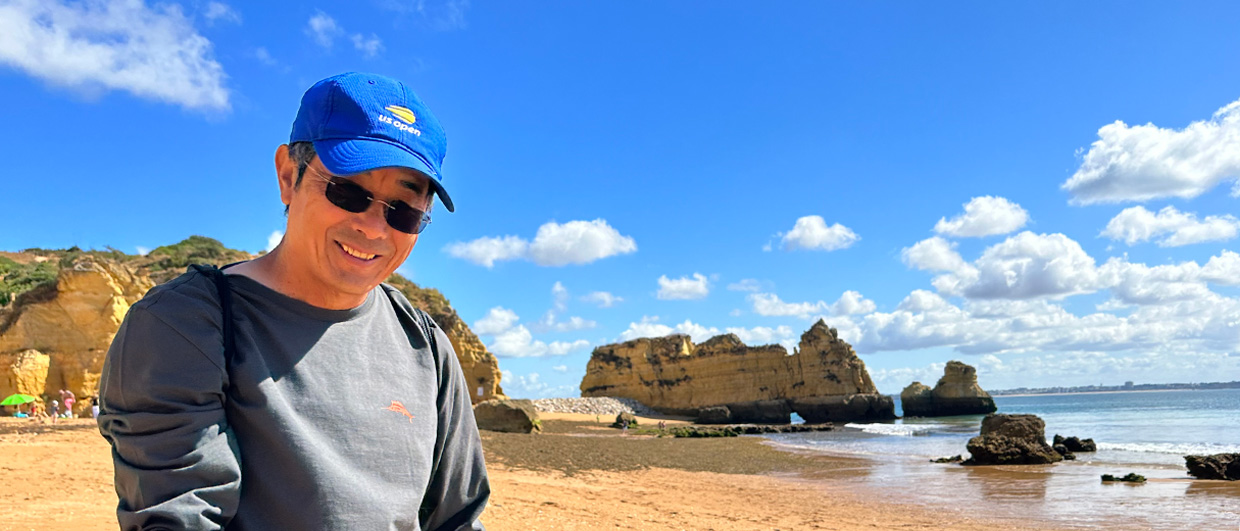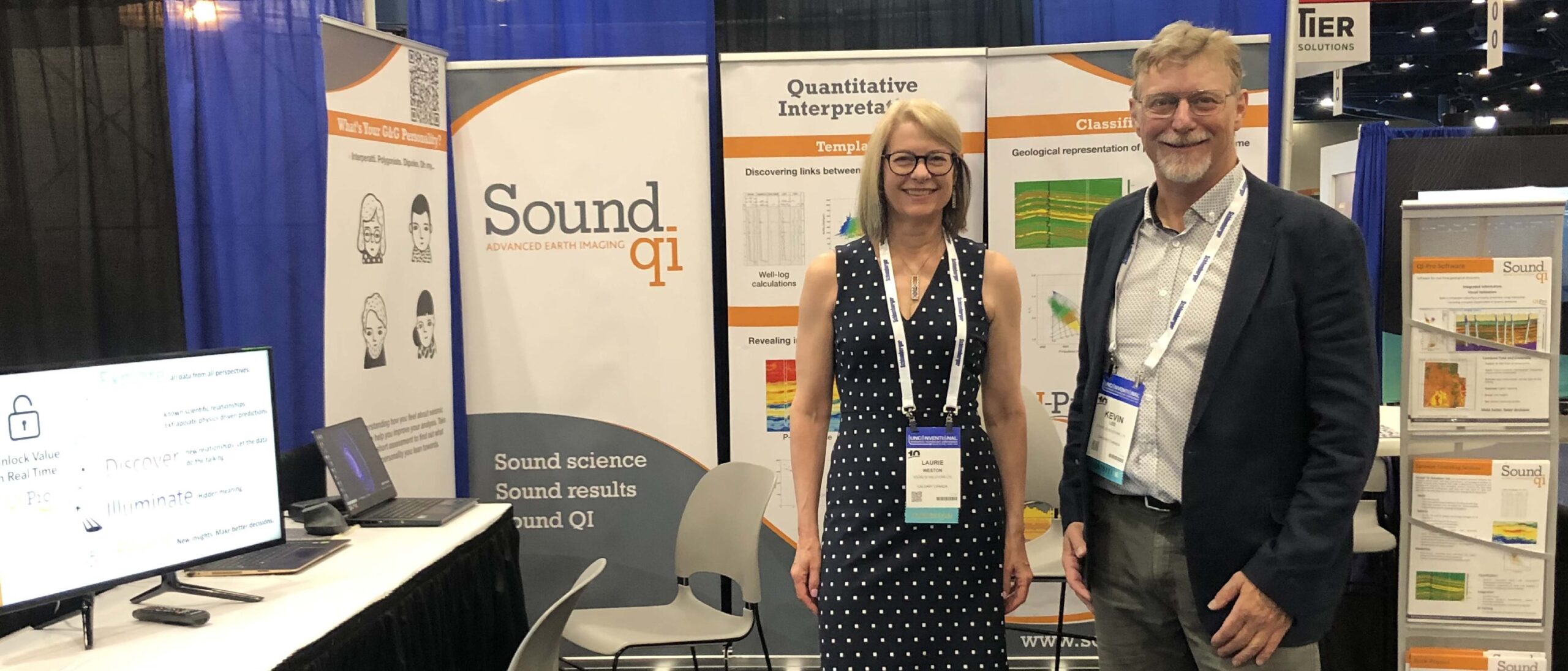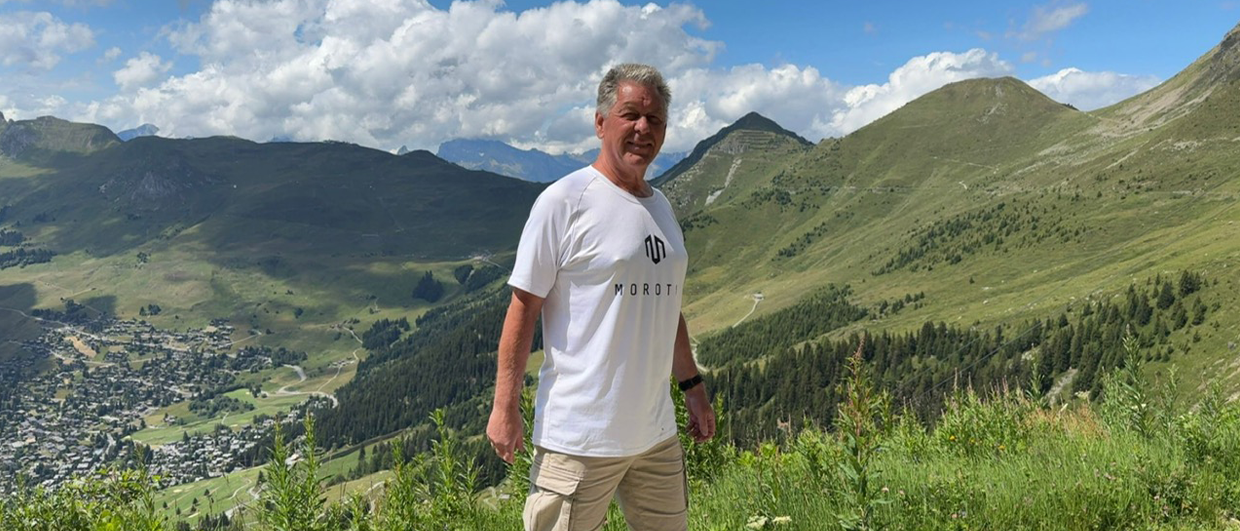“I was born in ‘red’ Clydeside – known as such for its strong left-wing leanings – where my father started life as a shipyard worker. Life was hard when I was young,” Ian says. “We lived in a poor tenement building near Paisley and there wasn’t much spare money in the house; I remember when Christmas dinner was tinned corned beef. I first started earning when I was 12, selling bread rolls before school for my uncle who was a baker. I gave my mother three shillings a week from this and was allowed to keep the few pennies left over, so I learnt the value of money at a very early age!”
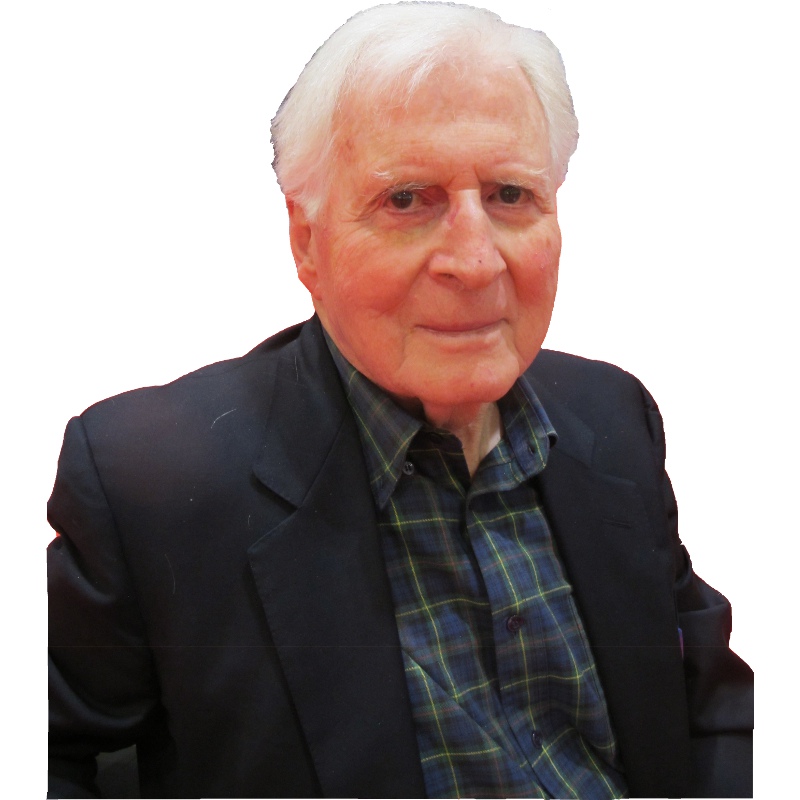 Ian Forrest. (Source: Jane Whaley)Ian was considered ‘a wee bit different’ by his friends and family, because he always wanted to study and go to university, not something most of them had ambitions towards. He passed the exam for grammar school, but was unable to go as his parents could not afford the, albeit small, fees, but he still managed to take his ‘Highers’, the final school exams in Scotland and the passport to university. One of his fellow students at Camphill School in Paisley was Ian Gillespie, later head of BP Exploration.
Ian Forrest. (Source: Jane Whaley)Ian was considered ‘a wee bit different’ by his friends and family, because he always wanted to study and go to university, not something most of them had ambitions towards. He passed the exam for grammar school, but was unable to go as his parents could not afford the, albeit small, fees, but he still managed to take his ‘Highers’, the final school exams in Scotland and the passport to university. One of his fellow students at Camphill School in Paisley was Ian Gillespie, later head of BP Exploration.
“I had initially concentrated on the arts, but went back for an extra year to get my science Highers, so I wasn’t called up to fight in the war in 1942, when I was 18,” he continues. “I spent a year at university studying maths, before joining the RAF, where my mathematical skills meant I became a navigator. For training I was sent to Canada and learnt to fly – I could pilot a Tiger Moth long before I could drive a car – and was then sent to Italy, flying all over the Mediterranean. That’s when I first fell in love with that beautiful country, which was to become a significant place in my life.
“Luck plays a part in life: I’ve always thought how lucky I was to be sent to Canada and Italy in 1943 instead of being trained in the UK and ending up in Bomber Command, where the life expectancy at that stage of the war was just a few weeks.”
Becoming a Well Geologist
Ian remained in the RAF until 1947, when he finally returned to Glasgow and to university. He specialised in sciences, concentrating on geology, and met a young Danish girl, Alfhill, who had come to Scotland on holiday. By the time he graduated they were married, and they moved to Copenhagen, where his wife was training as a nurse.
“My brother-in-law told me about an American company drilling for oil in the north of Denmark – Gulf Oil, as it turned out – so I went to their office in Copenhagen, took the lift to the 3rd floor, marched into the manager’s office, told him I was a geologist and asked if he had any jobs: ten days later I was on a drilling rig near Aalborg in northern Denmark, learning Danish – and the finer points of well logging – fast! Can you imagine it happening like that nowadays? I hadn’t even met the personnel director – I guess my face fitted.”
Ian spent three years in Denmark with Gulf, but unfortunately the rocks did not prove productive. “It is all glacial drift in that area, but I soon had a good understanding of the buried geology. In fact, I was the first geologist to construct a subsurface cross-section of Denmark (in 1953), which proved the presence of the Triassic Musselkalk Formation. We understood the significance of salt when looking for hydrocarbon traps, but unfortunately the Mesozoic formations onshore Denmark proved to be immature, and we had yet to move offshore at that time. There was great confidence in the country that we would find oil, so much so that testing at the first Danish deep well was filmed live, but unfortunately it proved to be a saltwater gusher – which led to a sardonic cabaret song.”
Heading for Warmer Climes
In 1952 Gulf transferred Ian and his family, by now including his two young daughters, to Tunisia as a senior well geologist, for a three-month tour that lasted two years. As France, the colonial power, was fighting a violent uprising by Arab Tunisian nationalists, it proved an interesting and exciting time. “We were initially based in Djerba, in south-eastern Tunisia – a beautiful and historic place. The Isle of Djerba is connected to the mainline by a Roman causeway,” Ian explains. “We enjoyed living in Tunisia, but when we moved further north it could be quite dangerous, particularly driving at night, when there were a lot of hijacks and attacks. If it was getting dark before I had made it home, I used to offer the locals a lift, hoping they would act as protection against snipers. I remember one occasion when the French army arrived at our rig unannounced and handed out guns ‘for protection’. The Danish crew, most of whom had no idea how to fire a gun but thought they’d like to try, were very upset when I insisted we gave the weapons back: it wouldn’t have been long before the rebels had heard about them and forcibly relieved us of them!
“It was fun, but not easy for my wife and girls, so we were very happy when I was promoted to area geologist for the 200 MMbo Ragusa field in Sicily, which meant that as well as getting to know Italy, I was able to expand my professional experience with increasing knowledge of production and drilling, assisted by my team of sometimes volatile Italian geologists. On one occasion we had a major blowout, which Myron Kinley (the mentor of firefighter ‘Red’ Adair) took several days to cap, much to the entertainment of all the locals.”
“Sicily in 1954 was really quite backward, and it was hard for my wife, looking after our two small daughters with very few mod cons. We did have fresh milk delivered, though – straight from the goat! And, since this was Sicily, of course I had to meet the local Mafia boss; he was a little, round, fat guy, straight out of the movies. Luckily, I didn’t have too many dealings with him – although he did threaten to send the toolpusher back to Texas in a box for not paying him to protect our water supply. Fortunately, a higher authority intervened and a deal was made to save face all round.”
In at the Beginning
In 1959, Ian and his family moved to Turkey, living in Istanbul and Ankara, where on one occasion their Turkish maid invited them to a public execution – an offer politely declined. Working near the Greek and the Syrian borders, Ian has vivid memories of hunting rabbits with the assistance of the car headlights to supplement his diet. After a few years he decided it was time to leave Gulf and move back to Scotland – just in time for the beginning of the North Sea oil industry. He joined Conoco in 1963 as the company’s first UK-based geologist. “I landed on my feet, maybe because I’m a brash Scot,” he laughs. “I tend to stick my nose out and take the risk that it might get bitten off!”
He remembers undertaking an early geophysical survey along the Northumbrian coast in 1964 using explosives (now forbidden), which “provided mass entertainment onshore for the local inhabitants – and an unexpected harvest of fish as well. At the time, the average offshore shot was 5lbs (2 kg) of dynamite, detonated at frequent intervals. Off the north-east coast of England we tried using 10lb charges for technical reasons, but the pyrotechnics and blast effects along the nearby promenade put a stop to the experiment despite the enjoyment of the spectators, both on land and afloat!” He also remembers running a seismic line off the south coast near Wytch Farm, now known as the largest onshore oilfield in Europe, but at the time its presence and extent were not recognised by BP, then the permit holder, and it was passed over.
In early 1964 the first UK North Sea discovery had yet to be made but the industry was beginning to develop. “There were only a few of us working in it at the time,” Ian explains, “and we used to meet up informally for a few drinks and a chat. At one of these gatherings – in the Westbury Hotel in London – it was suggested that we formed a specialist society, with the aim of promoting the exchange of views and information on the geology and geophysics of the North Sea. Very soon the Petroleum Exploration Society of Great Britain was born, with me as one of the founder members.”
Ian worked for Conoco for 22 years, initially in the North Sea and also in Italy, commuting back to the UK frequently to be with his family whilst his daughters finished their education. In 1972, he was asked to return to his favourite country to open an office for Conoco in Rome. “I was working in the centre of that beautiful city – it was wonderful,” he says. “For a time I rented a villa in Rome’s ‘Nob Hill’ where they say Garibaldi had slept. I was soon involved in drilling several wells, both on and offshore, as operator for a number of groups of companies.”
Time to Relax
Conoco used the Rome office to look at opportunities below the salt in Gabon, and in 1985 Ian was offered a move to open the office there. However, Alfhill and he decided that it was time to retire, so instead of equatorial Africa, the two of them moved back to Sicily, to their house on the coast near Siracusa, which they had bought while they were in Rome. “As well as snorkelling, we spent a lot of time creating a ‘dry’ garden out of the steep hillside overlooking the beach,” he says. “It was very challenging but enjoyable, building terraces and finding the right plants for such tough, exacting terrain. Some years the rainfall was zero, but groundwater was plentiful in the outcropping limestone. Our pride and joy was a large candelabra cactus festooned with orange flowers. I also learnt to play the piano, something I had always wanted to do, and made good progress, managing to play some Mozart sonatas. I still play the piano a lot.
“However, in 1988 Conoco asked me to organise a two well offshore programme in Sicily, so I rounded off my oil career living in my own Sicilian property. By the time I retired a second time, the terraced coastal garden was mature and my wife decided she wanted a new project – an English garden – so we bought a house with an acre of sloping meadow on the coast near Rye in south-eastern England. Within a few years the field had been transformed into another terraced garden, complete with delightful pond and resident grass snake.”
Thirteen years later, Ian and Alfhill, by then in their 80s, decided the large garden was getting a bit much and moved back to their original London home in Blackheath Village in south-east London, which has a more manageable walled garden. He describes the area as “a lovely oasis, with a great community and lots of excellent places to eat.”
After his return to the UK several oil companies had tried to tempt Ian out of his contented retirement, but he always turned them down, being more than happy with his routine in Blackheath with Alfhill, seeing his daughters and grandchildren and enjoying concerts and the occasional cruise, as well as trips back to Denmark where it all started. However, he still keeps an eye on the industry; I met him during his regular visit to the PESGB’s PETEX conference in London, and he likes to attend the society’s monthly lectures.
Final Thoughts
“Being now 91 years of age, I am a bit bemused that in Britain we have many people who do not realise that we must use all the economic resources our country can muster. Through ignorance they are unwilling to give shale gas ventures any encouragement. Fortunately, the government seems to think differently and has given the go-ahead under sensible regulations. We need to evaluate the potential.”
Ian adds a technical footnote to this biographical story, illustrating that conventional methods are not always the best. “In 1983 I persuaded our drilling department to consider penetrating a difficult, fractured massive limestone, several thousand feet deep in south-east Italy, without using continuous circulation of the drilling fluid. This, of course, is heresy in the driller’s bible. However, the well programme was prepared with due care and the geological objective was successfully reached, at a cost of $13 million. At a later date another operator drilled the same rocks to the same depth but using the conventional ‘stop and seal’ method; the well cost $40 million. It’s important that we learn from others – and are willing to sometimes bend the rules,” he concludes.
“I have a lot to be grateful to the oil industry for,” Ian explains. “I have had an interesting and exciting life with fascinating experiences in some amazing places – like the village in Turkey where I was invited to the annual boys circumcision ceremony; and the celebration when the son of the Caliph of Djerba organised my well-site sample work. And I became proficient in French, Italian and Danish, though lack of use means I’m losing some of my vocabulary.
“Exploring for hydrocarbons has turned the poor boy from Glasgow into the professional who could choose to turn work down. Oil has been very good to me.”

